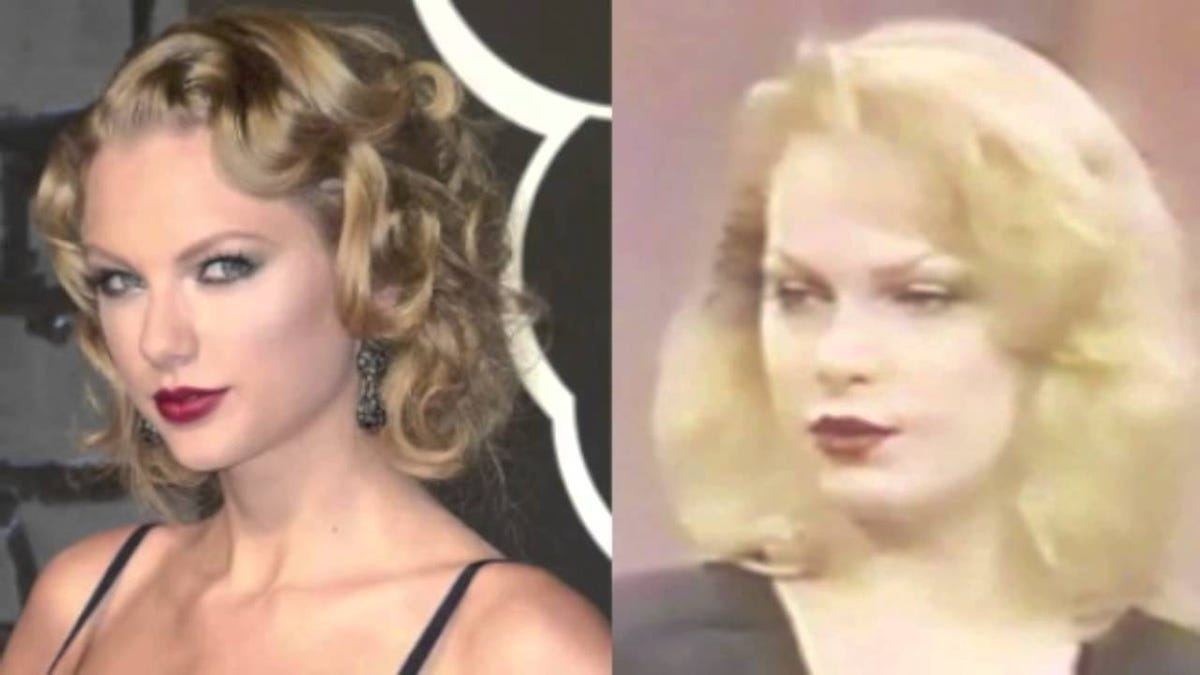Taylor Swift, one of the most iconic and celebrated musicians of our time, has faced numerous controversies throughout her career. Among these, the allegation that she is a Satanist has gained significant attention online. But is there any truth to these claims? This article aims to thoroughly examine the origins of these rumors, analyze the facts, and provide a well-rounded perspective on Taylor Swift's life, beliefs, and impact on popular culture.
As a global superstar, Taylor Swift's name is often at the center of debates and discussions. The rumors surrounding her supposed connection to Satanism have circulated widely, particularly on social media platforms. However, it is essential to approach such claims critically and separate fact from fiction.
In this article, we will delve into the origins of the "Taylor Swift Satanist" allegations, explore her real-life beliefs, and analyze the impact of these rumors on her career. By the end, you'll have a clearer understanding of the truth behind these controversial claims.
Read also:Sandra Blust X A Comprehensive Guide To Her Impact And Achievements
Table of Contents
- Biography: Who Is Taylor Swift?
- Origins of the Rumors
- What Is Satanism?
- Analysis of Taylor Swift's Music
- Public Statements on Religion and Beliefs
- Impact of the Rumors on Taylor Swift's Career
- Psychology Behind Conspiracy Theories
- Celebrity Culture and Misinformation
- Debunking the Taylor Swift Satanist Myth
- Conclusion
Biography: Who Is Taylor Swift?
Taylor Swift's Early Life
Taylor Alison Swift was born on December 13, 1989, in Reading, Pennsylvania. From a young age, she demonstrated a passion for music and songwriting. Her family moved to Nashville, Tennessee, when she was 14 to pursue her dreams of becoming a country music star. Taylor's talent and determination quickly propelled her to fame, and she released her self-titled debut album in 2006.
Below is a brief overview of her personal information:
| Full Name | Taylor Alison Swift |
|---|---|
| Date of Birth | December 13, 1989 |
| Place of Birth | Reading, Pennsylvania, USA |
| Profession | Singer, Songwriter, Actress |
| Genres | Country, Pop, Folk |
Taylor Swift's Career Milestones
Taylor Swift has achieved numerous milestones in her career, including:
- Winning 12 Grammy Awards, including three Album of the Year wins.
- Releasing chart-topping albums such as "1989," "Reputation," and "Folklore."
- Breaking records for music streaming and concert attendance.
- Becoming one of the best-selling music artists of all time.
Origins of the Rumors
The rumors labeling Taylor Swift as a Satanist began circulating online in the early 2010s. These claims were fueled by misinterpretations of her music videos, lyrics, and public appearances. For example, her "Look What You Made Me Do" video featured symbolic imagery that some viewers interpreted as occult references. However, these interpretations were often taken out of context and lacked credible evidence.
Social Media's Role in Spreading Misinformation
Social media platforms like Twitter, Instagram, and TikTok have played a significant role in amplifying these rumors. The viral nature of online content can lead to the rapid spread of misinformation, often without proper fact-checking. As a result, many people accept these claims as truth without critically analyzing the evidence.
What Is Satanism?
Before diving deeper into the allegations, it's important to understand what Satanism actually entails. Satanism is a diverse set of beliefs and practices that often revolve around the rejection of traditional religious values. However, it is not a monolithic ideology and varies significantly depending on the group or individual practicing it.
Read also:Rose Hart The Fascinating Journey Of An Influential Figure
Common Misconceptions About Satanism
- Satanism is often associated with evil or malevolent intentions, but many practitioners view it as a form of self-empowerment.
- Not all forms of Satanism involve worshiping a deity; some focus on philosophical or atheistic principles.
- Pop culture portrayals of Satanism frequently exaggerate or misrepresent its true nature.
Analysis of Taylor Swift's Music
Taylor Swift's music spans multiple genres, from country to pop to folk. Her lyrics often explore themes of love, heartbreak, and personal growth. While some songs may contain metaphorical or symbolic language, these elements are typically artistic expressions rather than hidden messages.
Symbolism in "Look What You Made Me Do"
The "Look What You Made Me Do" video features various symbols, including snakes and pyramids, which some viewers interpreted as occult references. However, Taylor Swift herself has stated that these elements were inspired by art history and were meant to convey themes of transformation and reinvention.
Public Statements on Religion and Beliefs
Taylor Swift has been open about her spiritual journey and beliefs. In interviews, she has described herself as a Christian who values faith and family. While she doesn't often discuss religion publicly, her actions and statements suggest a deep commitment to her faith.
Quotes from Taylor Swift
- "I think it's important to have faith in something bigger than yourself."
- "My faith has been a constant source of strength throughout my life."
Impact of the Rumors on Taylor Swift's Career
The "Taylor Swift Satanist" rumors have had both positive and negative effects on her career. On one hand, they have generated buzz and kept her name in the public eye. On the other hand, they have caused confusion and misinformation among her fans and detractors alike.
How Taylor Swift Handles Criticism
Taylor Swift has demonstrated resilience in the face of criticism and controversy. Rather than engaging directly with rumors, she focuses on creating meaningful art and connecting with her fans. Her ability to rise above negativity has earned her widespread admiration and respect.
Psychology Behind Conspiracy Theories
Conspiracy theories like the "Taylor Swift Satanist" allegations are rooted in psychological factors such as cognitive biases and the human tendency to seek patterns in random events. People often find comfort in attributing complex phenomena to simple explanations, even if those explanations lack evidence.
Why Do People Believe in Conspiracy Theories?
- Cognitive biases, such as confirmation bias, lead people to favor information that supports their pre-existing beliefs.
- Uncertainty and fear can drive individuals to seek certainty, even if it means believing in unlikely scenarios.
- Social influence and groupthink play a significant role in spreading conspiracy theories.
Celebrity Culture and Misinformation
Celebrity culture often fuels the spread of misinformation and rumors. The public's fascination with famous individuals can lead to exaggerated or fabricated stories. In Taylor Swift's case, her massive popularity and media presence have made her a frequent target of speculation and gossip.
How to Combat Misinformation
- Fact-check information before sharing it online.
- Seek credible sources and avoid relying solely on social media for news.
- Encourage critical thinking and open-mindedness in discussions about celebrities.
Debunking the Taylor Swift Satanist Myth
After examining the evidence, it becomes clear that the "Taylor Swift Satanist" allegations are baseless. Taylor Swift's music, public statements, and personal life all point to a woman dedicated to her craft and her faith. The rumors are likely the result of misinterpretations, exaggerations, and misinformation.
Key Takeaways
- Taylor Swift's music and videos often contain metaphorical elements, but these are artistic choices rather than hidden messages.
- Her public statements and actions demonstrate a commitment to Christianity and family values.
- The spread of rumors highlights the importance of critical thinking and fact-checking in the digital age.
Conclusion
In conclusion, the "Taylor Swift Satanist" allegations are unfounded and lack credible evidence. Taylor Swift is a talented artist and a committed Christian who has made a significant impact on popular culture. By critically analyzing the facts and avoiding the spread of misinformation, we can better appreciate her contributions to music and entertainment.
Take action by sharing this article with your friends and family to help dispel these myths. Encourage others to approach rumors critically and seek out reliable sources of information. Together, we can promote a more informed and respectful celebrity culture.


